German Driver's License: Frequently Asked Questions
In this resourceful series, we address frequently asked questions (FAQs) related to obtaining, driving with, and understanding the German driver’s license system. From driving in Germany as a foreigner to the different license categories and the points system, we provide clear and concise answers to ensure you have the knowledge you need.
FAQ: Driving in Germany as a Foreigner
We are here to answer common questions about driving in Germany as a foreigner, providing you with the essential information you need. Let’s delve into the FAQs:
Driving with a Foreign License:
- Driving with a foreign license in Germany is permitted under certain conditions. Here’s what you need to know:
- Duration of Validity: Your foreign license is typically valid for six months from the date of your arrival in Germany. It’s important to note that this validity period may vary depending on your country of origin. After the six-month period, you will generally be required to exchange your foreign license for a German one.
- Exchange Requirements: In some cases, you may need to exchange your foreign license for a German driver’s license before the six-month period expires. This requirement depends on your country of origin and whether you are from a European Union (EU) or European Economic Area (EEA) member state or a non-EU/EEA country. Check the specific regulations for your country to determine if an exchange is necessary.
- Documentation and Translation: When driving with a foreign license, it’s important to carry your original license along with an official translation in German or an International Driving Permit (IDP). This ensures that your license is valid and easily understandable by German authorities.
- Additional Requirements: Some countries have reciprocal agreements with Germany, allowing their citizens to drive with their foreign license beyond the six-month period. However, if you’re from a non-reciprocal country, you’ll likely need to pass a theoretical and practical driving test to obtain a German driver’s license.
- Understanding the rules and regulations surrounding driving with a foreign license in Germany is crucial to ensure compliance and avoid any legal issues. Be sure to familiarize yourself with the specific requirements based on your country of origin.
Temporary Permits:
If you’re visiting Germany as a tourist or residing temporarily, you may need a temporary permit to drive legally. Here’s what you should know:
Tourist Temporary Permit: As a tourist, you can generally drive in Germany using your valid foreign driver’s license for up to six months. However, ensure that your license is in a language that can be easily understood by German authorities. If not, consider obtaining an International Driving Permit (IDP) or an official translation.
Residence Permit Holders: If you’re residing temporarily in Germany, such as for work or study purposes, you may need a temporary residence permit. This permit allows you to drive legally in Germany with your foreign license throughout your authorized stay. Check with the local authorities or your employer/university for specific requirements and procedures.
Insurance Coverage: It’s important to ensure that you have adequate vehicle insurance coverage during your stay in Germany. Contact your insurance provider to confirm whether your policy extends coverage to international driving or if you need to obtain additional coverage.
Remember to carry your valid foreign driver’s license, temporary residence permit (if applicable), and relevant documentation when driving in Germany as a temporary visitor. Compliance with the local regulations is essential for a smooth and hassle-free driving experience.
International Driving Permits (IDPs):
An International Driving Permit (IDP) serves as a supplementary document to your foreign driver’s license when driving in Germany. Here’s what you need to know about IDPs:
- Obtaining an IDP: To obtain an IDP, you’ll need to apply in your home country before traveling to Germany. Visit the local automobile association or licensing authority in your country to obtain the necessary application forms and requirements. Generally, you’ll need to provide your valid driver’s license, passport-sized photos, and a nominal fee.
- IDP Validity: An IDP is valid for one year from the date of issue. It allows you to drive in Germany and other participating countries, providing an official translation of your license into multiple languages.
- Supplementary Document: An IDP should always be carried alongside your valid foreign driver’s license when driving in Germany. It helps authorities understand the details of your license and ensures smoother communication and verification of your driving credentials.
- Rental Car Requirements: If you plan to rent a car in Germany, most rental agencies will require you to present both your valid foreign driver’s license and an IDP. Check with your rental agency in advance to confirm their specific requirements.
Obtaining an IDP is a prudent step to ensure seamless interactions with German authorities and rental car agencies. It provides an additional layer of verification and translation, making it easier for all parties involved to understand your driving credentials.

FAQ: German Driver's License Categories
Navigating the driving license categories in Germany can be overwhelming, but fear not! We are here to provide clarity on the different license categories and their specific requirements. Let’s dive into our FAQs:
Motorbike Licenses:
If you’re eager to hit the German roads on a motorbike, it’s important to understand the specific requirements for obtaining a motorbike license. Here’s what you should know:
License Categories: Motorbike licenses in Germany are divided into different classes based on engine power and age restrictions. The categories include A1, A2, and A. The A1 license is for motorcycles with a maximum engine capacity of 125cc, while the A2 license allows you to ride motorcycles with a power output of up to 35kW. The A license is unrestricted and permits you to ride any motorcycle.
Training and Exams: To obtain a motorbike license, you must undergo mandatory training and pass exams. The training involves both theoretical instruction and practical lessons. The theoretical portion covers road rules, safety regulations, and hazard awareness. The practical lessons focus on developing your riding skills under the guidance of a qualified instructor. After the training, you’ll need to pass a final exam to obtain your motorbike license.
Age Restrictions: Age restrictions apply to each motorbike license category. For the A1 license, you must be at least 16 years old. The A2 license requires a minimum age of 18, and the A license has a minimum age requirement of 24. However, if you have held the A2 license for at least two years, you can upgrade to the A license at the age of 20.
Understanding the specific requirements for motorbike licenses in Germany ensures that you pursue the appropriate training and exams based on your desired license category. Whether you’re starting with the A1 license or aiming for the unrestricted A license, familiarize yourself with the process to embark on your motorbike adventures with confidence.
Truck Licenses and Specialized Categories:
Driving trucks or specialized vehicles in Germany comes with additional requirements and specialized licenses. Here’s what you should know:
License Categories: Truck licenses and specialized vehicle licenses are specific to the type of vehicle you intend to drive. Depending on the size and purpose of the vehicle, different license categories exist. These categories include C1, C, C1E, CE, D1, D, D1E, and DE. Each category has specific requirements and allows you to drive different types of vehicles, such as trucks, buses, ambulances, and heavy machinery.
Age and Experience Requirements: Driving trucks and specialized vehicles often has age and experience restrictions. For example, to obtain a C1 license, you must be at least 18 years old, while the C license requires a minimum age of 21. The D1 license has a minimum age of 21, while the D license requires you to be at least 24 years old. Additionally, some categories may require prior driving experience or the possession of specific prerequisite licenses.
Training and Exams: Acquiring a truck license or a license for specialized vehicles involves specialized training and exams. The training includes theoretical instruction covering topics like vehicle control, safety regulations, and cargo handling. Practical training focuses on developing your driving skills specific to the type of vehicle you’re aiming to drive. After completing the training, you’ll need to pass both theoretical and practical exams to obtain your license.
Obtaining a truck license or a license for specialized vehicles requires careful consideration of the specific requirements and training involved. Whether you aspire to drive trucks, buses, or other specialized vehicles, understanding the necessary steps helps you plan your journey towards obtaining the appropriate license.
German Driver's License and Others for Sale
-
Out of stock
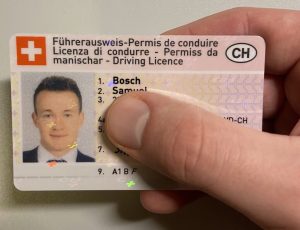 $775.00Rated 5.00 out of 5 based on 10 customer ratings
$775.00Rated 5.00 out of 5 based on 10 customer ratingsHaving a Swiss driver's license is essential for individuals who...
-
Out of stock
 $2,200.00Rated 5.00 out of 5 based on 4 customer ratings
$2,200.00Rated 5.00 out of 5 based on 4 customer ratingsGet behind the wheel with confidence - the Polish Driver's...
-
Out of stock
 $800.00Rated 5.00 out of 5 based on 6 customer ratings
$800.00Rated 5.00 out of 5 based on 6 customer ratingsBuy Norwegian Driver's online from the best producers on the...
-
Out of stock
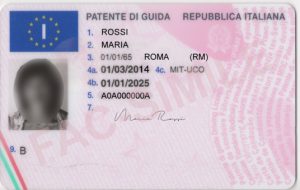 $800.00Rated 5.00 out of 5 based on 5 customer ratings
$800.00Rated 5.00 out of 5 based on 5 customer ratingsDrive the Italian way with confidence - the Italian Driver's...
-
Out of stock
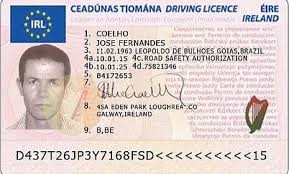 $850.00Rated 5.00 out of 5 based on 4 customer ratings
$850.00Rated 5.00 out of 5 based on 4 customer ratingsThe Irish Driver's License is your ticket to safe and...
-
Out of stock
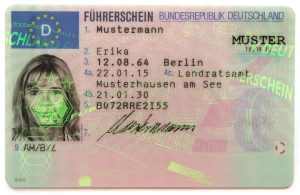 $850.00Rated 5.00 out of 5 based on 4 customer ratings
$850.00Rated 5.00 out of 5 based on 4 customer ratingsThe German driver's license is a highly-secure and government-issued document...
-
Out of stock
 $750.00Rated 5.00 out of 5 based on 2 customer ratings
$750.00Rated 5.00 out of 5 based on 2 customer ratingsGet on the road to freedom with the French driver's...
-
Out of stock
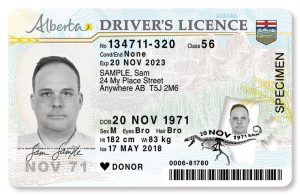 $850.00Rated 5.00 out of 5 based on 5 customer ratings
$850.00Rated 5.00 out of 5 based on 5 customer ratingsDrive with confidence and freedom with the Canadian driver's license...
-
Out of stock
 $850.00Rated 5.00 out of 5 based on 6 customer ratings
$850.00Rated 5.00 out of 5 based on 6 customer ratingsThe British driver's license is a secure and reliable document...
-
Out of stock
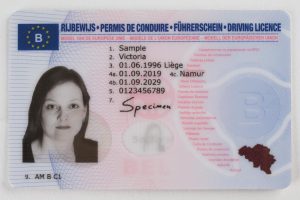 $750.00Rated 5.00 out of 5 based on 12 customer ratings
$750.00Rated 5.00 out of 5 based on 12 customer ratingsThe Belgian driver's license is a highly secure and reliable...
-
Out of stock
 $800.00Rated 5.00 out of 5 based on 7 customer ratings
$800.00Rated 5.00 out of 5 based on 7 customer ratingsThe Australian driver's license is a highly secure and reliable...
-
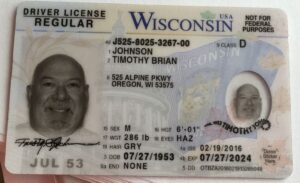 $800.00Rated 5.00 out of 5 based on 7 customer ratings
$800.00Rated 5.00 out of 5 based on 7 customer ratingsHigh-quality fake US driver's licenses, available in different states and...
FAQ: German Driver's License Points System
Let’s explore the frequently asked questions related to the driving license points system:
- Points for Driving Offenses:
Understanding the offenses that can result in points being added to your driving record is crucial for maintaining a clean driving history. Here’s what you should know:
Common Offenses: There are several common driving offenses that can lead to the addition of points on your license. These include speeding, running red lights, failure to yield, improper lane changes, driving under the influence of alcohol or drugs, driving without a valid license, and using a mobile phone while driving.
Assigned Points: Each offense carries a specific number of points that are assigned to your driving record. The number of points depends on the severity of the offense. For example, speeding violations can range from 1 to 3 points, while more serious offenses like driving under the influence can result in 7 points or more.
Accumulation of Points: Points accumulate on your driving record over a specific period of time, typically two to ten years, depending on the offense. If you commit multiple offenses within that timeframe, the points can add up quickly. It’s important to be aware of the points associated with each offense to understand the potential impact on your license.
Understanding the offenses that can lead to points being added to your driving record allows you to make informed decisions on the road and avoid actions that could jeopardize your driving privileges.
- Consequences and License Suspension:
Accumulating points on your driving record can have serious consequences. Here’s what you should know about the potential penalties:
Penalties and Fines: As you accumulate points on your driving record, you may face penalties and fines. The severity of the penalties increases with the number of points. For example, if you reach a certain threshold, you may be required to attend mandatory training courses or workshops related to traffic safety. Additionally, fines may be imposed depending on the offense and the number of points accumulated.
License Suspension: In more severe cases, the accumulation of points can lead to temporary or permanent license suspension. The specific threshold for license suspension varies depending on the offense and the number of points accumulated. License suspension means you will not be allowed to drive for a designated period or, in extreme cases, permanently lose your driving privileges.
Where to Buy a German Driver's License on the Dark Web
If you are looking to buy fake documents on the dark net, Darknetdocuments.com is known to provide the best novelty documents with very high quality which you won’t find anywhere else on the dark web. Contact us now for best deals through any of the following contact information;
- Whatsapp: +1 415 937 8544
- Telegram: +1 415 937 8544
Conclusion
As we conclude our, we provide a concise summary of essential information related to German driver’s licenses. Additionally, we offer links to additional resources, including official government websites and reputable driving schools, where you can find further information and assistance.
By addressing the frequently asked questions related to driving in Germany, we ensure that you have a comprehensive understanding of important topics
Sources:
In order to come up with this beautiful peace of write up, we read and copied some contents from other amazing writers/bloggers. Below is a list of sources we used;
